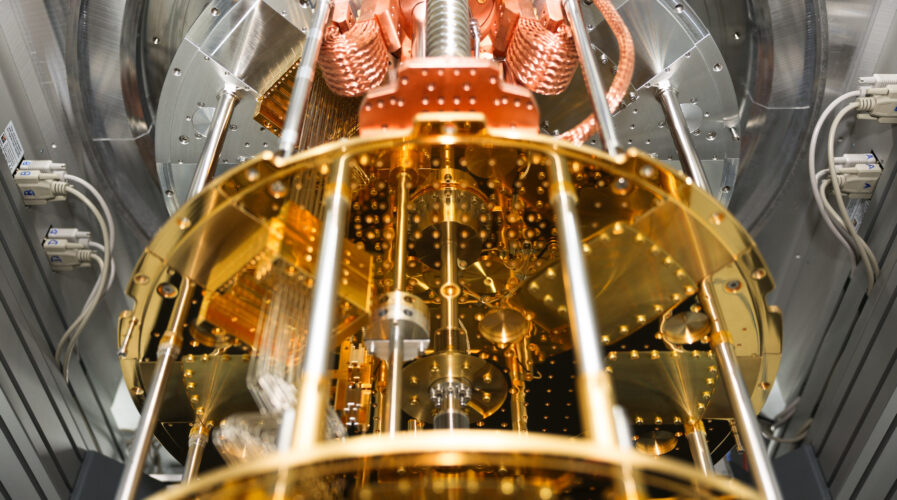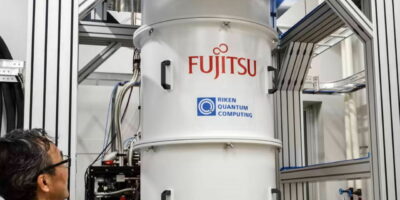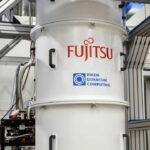
Located at Baidu’s Quantum Computing Hardware Lab in Beijing, “Qian Shi” is Baidu’s first industry-level superconducting quantum computer.
Baidu unveils world’s first all-platform integration solution for quantum computers
Quantum computers are quickly becoming the most sought-after tech of the decade, especially with more tech companies and enterprises looking to leverage more of it. While it may still be some years before actual use cases of quantum computers are available, the testing is not slowing down.
Both China and the United States have been competing in the industry for the longest time. In fact, both countries have also been claiming supremacy in different parts of the field. For example, the Chinese optical quantum computer Jiuzchang 2.0 claims to be the fastest while IBM claims to have the world’s most powerful quantum processor.
Apart from China and the US, Japan, Singapore and other European countries are also developing quantum computing and research on use cases. In Japan, for example, Fujitsu teamed up with scientific research institute Riken to become the first company in the country to sell quantum computers in 2023.
Now, China has taken another step forward in quantum computers. Chinese Internet giant Baidu Inc has unveiled the first superconducting quantum computer that fully integrates hardware, software, and applications.
On top of this, Baidu also introduced the world’s first all-platform quantum hardware-software integration solution that provides access to various quantum chips via mobile app, PC, and cloud.
Located at Baidu’s Quantum Computing Hardware Lab in Beijing, Qian Shi, Baidu’s industry-level superconducting quantum computer incorporates its hardware platform with Baidu’s home-grown software stack, which comprises numerous practical quantum applications, such as quantum algorithms used to design new materials for novel lithium batteries or simulate protein folding.
Offering a stable and substantial quantum computing service to the public Qian Shi has a high-fidelity 10 quantum bits (qubits) of power. In addition, Baidu also recently completed the design of a 36-qubit superconducting quantum chip with couplers, which demonstrates promising simulation results across key metrics.
Developing use cases with quantum computers
While enterprises are looking to harness the power of quantum computers and apply them to use cases, understanding the technology and applying still have some problems. The shortage of skills for example is just one of the many problems enterprises face when it comes to developing quantum computing use cases. Many enterprises are still in their testing phases and exploring how quantum computing will contribute to their real-world businesses.
With that said, Baidu developed Liang Xi, the world’s first all-platform quantum hardware-software integration solution. Liang Xi offers versatile quantum services through private deployment, cloud services, and hardware access. It is also able to plug into Qian Shi and other third-party quantum computers, including a 10-qubit superconducting quantum device and a trapped ion quantum device developed by the Chinese Academy of Sciences. Users can conveniently visit these quantum computational resources via mobile app, PC, and cloud.
According to Dr. Runyao Duan, Director of the Institute for Quantum Computing at Baidu Research, with Qian Shi and Liang Xi, users can create quantum algorithms and use quantum computing power without developing their own quantum hardware, and control systems, or programming languages.
“Baidu’s innovations make it possible to access quantum computing anytime and anywhere, even via smartphone. Baidu’s platform is also instantly compatible with a wide range of quantum chips, meaning ‘plug-and-play’ access is now a reality,” commented Dr. Duan.
These latest innovations are backed by Baidu Research’s Institute for Quantum Computing, whose technological footprint covers a wide range of areas, including quantum algorithms and applications, communications and networks, encryption and security, error correction, architecture, measurement, and control, and chip design. Across more than four years of research and development, Baidu has submitted over 200 core technology patent applications in the quantum technology field.
READ MORE
- Ethical AI: The renewed importance of safeguarding data and customer privacy in Generative AI applications
- How Japan balances AI-driven opportunities with cybersecurity needs
- Deploying SASE: Benchmarking your approach
- Insurance everywhere all at once: the digital transformation of the APAC insurance industry
- Google parent Alphabet eyes HubSpot: A potential acquisition shaping the future of CRM


